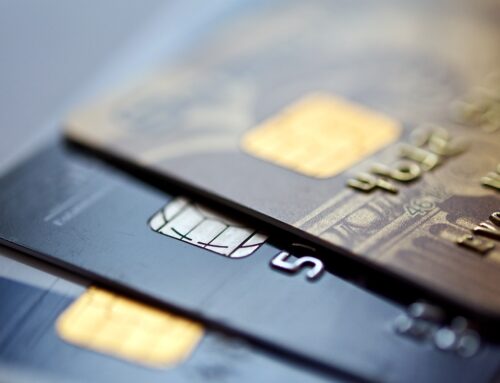Are you making any of the 5 common credit mistakes that can cost you hundreds of dollars? In this article, we’ll explore these mistakes and provide tips on how to avoid them.
Not Checking Your Credit Report Regularly
The first common credit mistake is not checking your credit report regularly. Your credit report is a summary of your credit history, including your credit accounts, payment history, and other important information. It’s important to check your credit report regularly to ensure that there are no errors or fraudulent accounts.
Why It’s Important to Check Your Credit Report
Checking your credit report regularly can help you detect and correct errors. It can also help you detect fraudulent accounts that may have been opened in your name without your knowledge. Catching these errors and fraud early can save you money and protect your credit score.
How to Get Your Free Credit Report
You’re entitled to a free credit report every year from each of the three major credit bureaus: Equifax, Experian, and TransUnion. You can obtain your free credit report by visiting AnnualCreditReport.com.
How to Read and Understand Your Credit Report
Your credit report can be difficult to read and understand. It’s important to review it carefully and understand the information it contains. You should review your personal information, credit accounts, payment history, and any negative items. If you find any errors or fraudulent accounts, you should dispute them with the credit bureau.
Maxing Out Your Credit Cards
The second common credit mistake is maxing out your credit cards. Your credit utilization, or the amount of credit you’re using compared to your credit limit, is an important factor in your credit score. Maxing out your credit cards can hurt your credit score and result in higher interest charges.
What is Credit Utilization?
Credit utilization is the amount of credit you’re using compared to your credit limit. For example, if you have a credit limit of $10,000 and you have a balance of $5,000, your credit utilization is 50%.
Why Maxing Out Your Credit Cards is a Bad Idea
Maxing out your credit cards can hurt your credit score by increasing your credit utilization. High credit utilization can also result in higher interest charges. Keeping your credit utilization low can improve your credit score and save you money in interest charges.
How to Keep Your Credit Utilization Low
To keep your credit utilization low, you can make multiple payments throughout the month, increase your credit limit, or use your credit cards sparingly. Making multiple payments throughout the month can reduce your balance and lower your credit utilization. Increasing your credit limit can also lower your credit utilization, but be careful not to increase your spending. Using your credit cards sparingly can also help you keep your credit utilization low.
Paying Only the Minimum Balance
The third common credit mistake is paying only the minimum balance on your credit cards. The minimum balance is the minimum amount you’re required to pay each month to keep your account current. However, paying only the minimum balance can result in higher interest charges and a longer repayment period.
What is the Minimum Balance?
The minimum balance is the minimum amount you’re required to pay each month to keep your account current. This amount is typically a percentage of your balance.
Why Paying Only the Minimum Balance is a Bad Idea
Paying only the minimum balance mostly pays interest charges, which means your balance will take longer to pay off. Paying only the minimum balance also extends your repayment period, which means you’ll pay more in interest charges over the life of your account.
How to Pay More Than the Minimum Balance
To pay more than the minimum balance, you can set up automatic payments for a higher amount or make manual payments throughout the month. By paying more than the minimum balance, you’ll reduce your balance faster and save money in interest charges
Applying for Too Many Credit Cards
The fourth common credit mistake is applying for too many credit cards. Every time you apply for a credit card, the credit card issuer will pull your credit report. This is known as a hard inquiry and can lower your credit score.
Why Applying for Too Many Credit Cards is a Bad Idea
Applying for too many credit cards can hurt your credit score by increasing the number of hard inquiries on your credit report. Hard inquiries can remain on your credit report for up to two years and can lower your credit score by several points. Applying for too many credit cards can also make you appear desperate for credit, which can raise red flags for lenders.
How to Avoid Applying for Too Many Credit Cards
To avoid applying for too many credit cards, only apply for credit cards that you need or that offer significant benefits. Research the credit card before applying to ensure that you meet the eligibility requirements. You should also space out your credit card applications to avoid too many hard inquiries in a short period of time.
Ignoring Payment Due Dates
The fifth common credit mistake is ignoring payment due dates. Late payments can hurt your credit score and result in late fees and higher interest charges.
Why Ignoring Payment Due Dates is a Bad Idea
Ignoring payment due dates can result in late fees and higher interest charges. Late payments can also hurt your credit score by up to 100 points or more. Late payments can remain on your credit report for up to seven years, which means they can affect your credit score for a long time.
How to Avoid Ignoring Payment Due Dates
To avoid ignoring payment due dates, set up automatic payments or reminders. You can also contact your credit card issuer to change your payment due date to a more convenient time. If you’re having trouble making your payments, contact your credit card issuer to discuss your options.
Conclusion
In conclusion, these are the five common credit mistakes that can cost you hundreds of dollars. By avoiding these mistakes and following the tips provided in this article, you can protect your credit score and save money on interest charges and fees. Remember to check your credit report regularly, keep your credit utilization low, pay more than the minimum balance, avoid applying for too many credit cards, and always pay your bills on time. With these tips, you can build and maintain a healthy credit score that will benefit you in the long run.
Do you know your credit score?
Most people don’t. In fact, a lot of people are surprised when they find out their score is lower than they thought. That’s where we come in – MastersCredit.com can help you determine exactly what’s hurting your credit so that the steps to fix it are clear and simple! We’re a credit repair company, so take our free online credit evaluation today, or call 1-844-620-8796 for more information.
You deserve to have great credit! It’s not only important for big things like getting a loan or buying a house, but also for everyday things like renting an apartment or setting up utilities. Let us help you get your credit back on track so you can enjoy life without worrying about your finances.
Take our free online credit evaluation today!
[wpi_designer_button slide_id=6350]
Note: The information on this website is for general purposes only and does not constitute financial or legal advice.







Leave A Comment